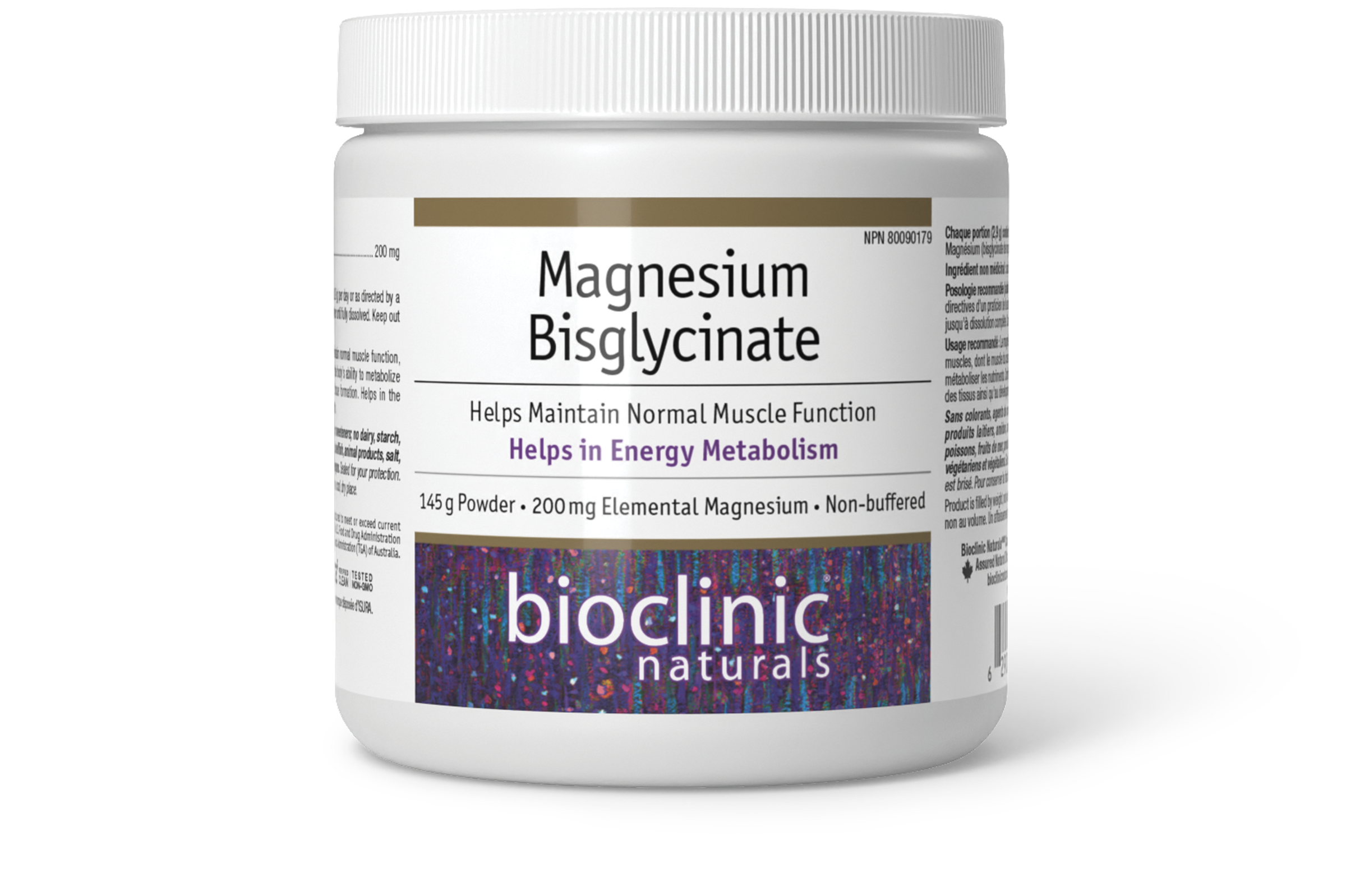
Maintains Proper Muscle Function
200 mg unbuffered
145 g ( SKU: 9500, NPN: 80090179 )
Medicinal Ingredients
| Each Serving (2.9 g) Contains: | |
| Magnesium (Magnesium Bisglycinate) | 200 mg |
Non-Medicinal Ingredients
Citric acid.
Dosage:
1 serving (2.9 g) per day or as directed by a health care practitioner. Mix well in 250 ml of water until fully dissolved.
Warnings:
Keep out of the reach of children. Individuals with impaired renal function should use this product under medical supervision to monitor the potential for hypermagnesemia.15
Allergens:
Contains no artificial colours, preservatives, or sweeteners; no dairy, starch, sugar, wheat, gluten, yeast, soy, corn, egg, fish, shellfish, animal products, salt, tree nuts, or GMOs. Suitable for vegetarians/vegans.
